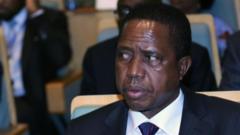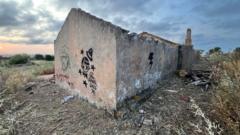**Portugal’s Parliament has voted to dismiss Prime Minister Luís Montenegro’s government amid controversy, triggering fresh elections slated for May.**
**Turmoil in Portugal: Government Ousted in No-Confidence Vote Sparking New Elections**

**Turmoil in Portugal: Government Ousted in No-Confidence Vote Sparking New Elections**
**The fall of Prime Minister Luis Montenegro’s administration marks another chapter in Portugal's recent political volatility.**
Portugal’s Parliament has thrown out Prime Minister Luís Montenegro’s government in a no-confidence vote, escalating the nation’s political instability and calling for new elections by May. The center-right coalition, known as the Democratic Alliance, had barely held onto power since winning only 29 percent of the vote in the March 2024 elections, just ahead of the Socialist Party.
Montenegro's government struggled from the outset due to a lack of parliamentary majority, and recent allegations regarding his business dealings further weakened his position. Reports surfaced that his family owned a real estate and consulting firm with ties to a casino operator seeking favorable government contracts. Although Montenegro claimed he transferred his ownership to his wife in 2022 and had not benefited from it while in office, opposition figures highlighted potential conflicts of interest that compelled them to pursue the no-confidence vote.
The fallout from the government’s collapse may favor the principal opposition parties: the Socialist Party, which held power from 2015 until 2024, and the far-right Chega party, which garnered 18 percent of the previous election's votes. However, both parties have faced their own ethical dilemmas, with members charged with scandals that could hinder their appeal.
Former Prime Minister António Costa, who resigned last year amid an investigation into corporate ties, has not faced charges and continues to navigate his political career as president of the European Council. With no party currently able to form a coalition and Spain preparing for a new electoral cycle, the political landscape in Portugal remains uncertain and contentious as the nation gears up for its third election within three years.
Montenegro's government struggled from the outset due to a lack of parliamentary majority, and recent allegations regarding his business dealings further weakened his position. Reports surfaced that his family owned a real estate and consulting firm with ties to a casino operator seeking favorable government contracts. Although Montenegro claimed he transferred his ownership to his wife in 2022 and had not benefited from it while in office, opposition figures highlighted potential conflicts of interest that compelled them to pursue the no-confidence vote.
The fallout from the government’s collapse may favor the principal opposition parties: the Socialist Party, which held power from 2015 until 2024, and the far-right Chega party, which garnered 18 percent of the previous election's votes. However, both parties have faced their own ethical dilemmas, with members charged with scandals that could hinder their appeal.
Former Prime Minister António Costa, who resigned last year amid an investigation into corporate ties, has not faced charges and continues to navigate his political career as president of the European Council. With no party currently able to form a coalition and Spain preparing for a new electoral cycle, the political landscape in Portugal remains uncertain and contentious as the nation gears up for its third election within three years.






















